Hashem Abedi: Manchester Arena attack brother 'equally guilty'
- Published
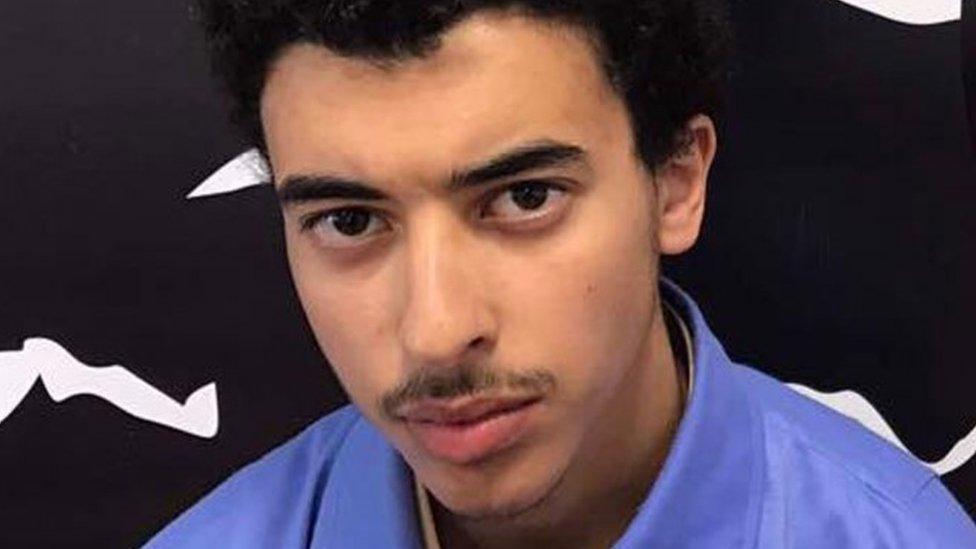
The Old Bailey heard the case concerns Hashem Abedi's "role in perpetrating" the attack
The brother of the Manchester Arena bomber was "just as guilty" of the murder of the 22 people who died in the attack, his trial has heard.
Salman Abedi detonated a "large home-made improvised explosive device" outside an Ariana Grande concert on 22 May 2017.
His brother Hashem Abedi is standing trial at the Old Bailey over his "role in perpetrating these terrible events".
He denies the murder of 22 people and the attempted murder of others.
He also denies conspiring with his brother to cause an explosion.
Prosecutor Duncan Penny QC said the siblings spent "months" planning the attack, which had been "both sudden and lethal" and had had "nearly 1,000 victims".
He said in addition to the 22 people - men, women, teenagers and a child - who died, a total of 264 "were physically injured" while 670 more had since "reported psychological trauma as a result of these events".
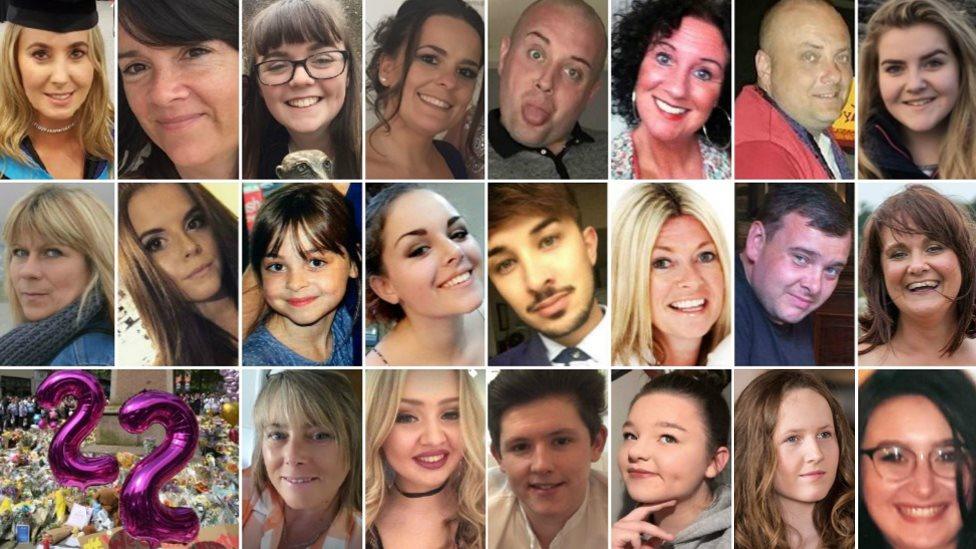
Top (left to right): Lisa Lees, Alison Howe, Georgina Callender, Kelly Brewster, John Atkinson, Jane Tweddle, Marcin Klis, Eilidh MacLeod - Middle (left to right): Angelika Klis, Courtney Boyle, Saffie Roussos, Olivia Campbell-Hardy, Martyn Hett, Michelle Kiss, Philip Tron, Elaine McIver - Bottom (left to right): Wendy Fawell, Chloe Rutherford, Liam Allen-Curry, Sorrell Leczkowski, Megan Hurley, Nell Jones
Mr Penny said the explosion was the "culmination of months of planning and preparation" by the brothers, who had worked together to source chemicals and buy screws and nails to use as "anti-personnel shrapnel" in experimental improvised bombs.
He said they had also obtained an address in Blackley, north Manchester where they could work on the device and bought a Nissan Micra car to use as a "de-facto storage facility".
The court heard the flat was "not an area the two were used to frequenting" and had been used as a "safe address from which to operate without unwanted or uninvited interruption".
The resulting bomb was "detonated in the middle of a crowd in a very public area… to kill and to inflict maximum damage", Mr Penny said.
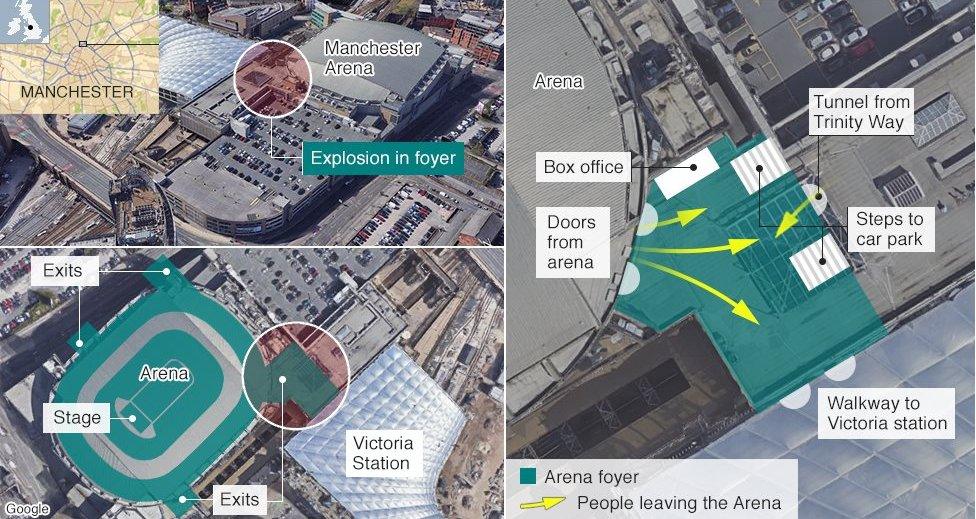
The court heard the Manchester-born brothers had lived alone in the family home in Fallowfield, about four miles south of the city centre, since 2016 when their parents returned to Libya.
Mr Penny said they had shown "some signs of radicalisation" in the years before the bombing - "Salman more so than Hashem".
Jurors were told Hashem had worked in a takeaway at the time and had asked if he could take home used vegetable oil cans to sell for scrap, which Mr Penny described as a "cover story".
A part of one of the cans was found at the scene of the attack.
Mr Penny said it was not suggested the brothers had a specific target and the final destination may have been chosen by Salman Abedi alone, but they had a "shared goal [to] kill, maim and injure as many people as possible".
"The law is that Hashem Abedi is just as responsible for this atrocity… as surely as if he had selected the target and detonated the bomb himself," he added.
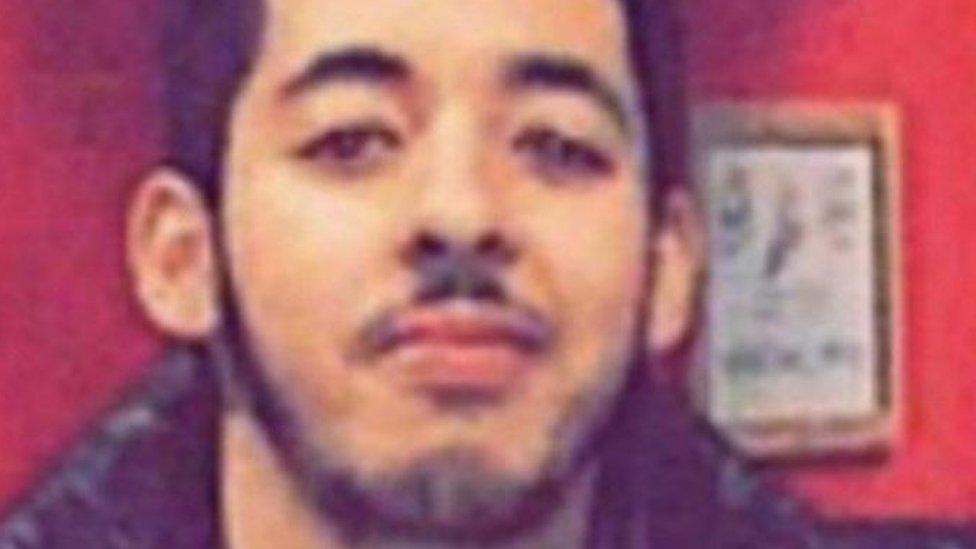
Salman Abedi and his brother lived in Fallowfield, four miles south of Manchester city centre
Jurors were shown a map of the city with locations such as Manchester Arena, the Arndale Centre and Victoria Station identified.
Mr Penny said the arena was "one of the busiest and one of the largest" in Europe and had been filled with the American singer's "large and diverse fan base" on the night of the attack.
He said the foyer outside it was "busy and heavily congested with people" as the crowd left the venue at about 22:30 BST, and in their "midst… carrying a heavy rucksack that contained a homemade bomb… was Salman Abedi".
He added that such was the "ferocity of the explosion" that it "dismembered" the bomber and left a scene "of destruction and chaos".
Mr Penny said "significant exhibits from two separate locations" linked Hashem to the attack.
He said his hand and finger marks were found on parts which had been cut from the vegetable oil cans at the brothers' Fallowfield home.
Six thumbprints were also discovered on a piece of metal that had been discarded in a bag of rubbish behind a flat in Manchester city centre where Salman Abedi had "ultimately assembled" the bomb, he added.
The court heard the pieces found at the flat and the home came from the same oil can as the one found in the arena foyer and "played a pivotal role in the development of this story".
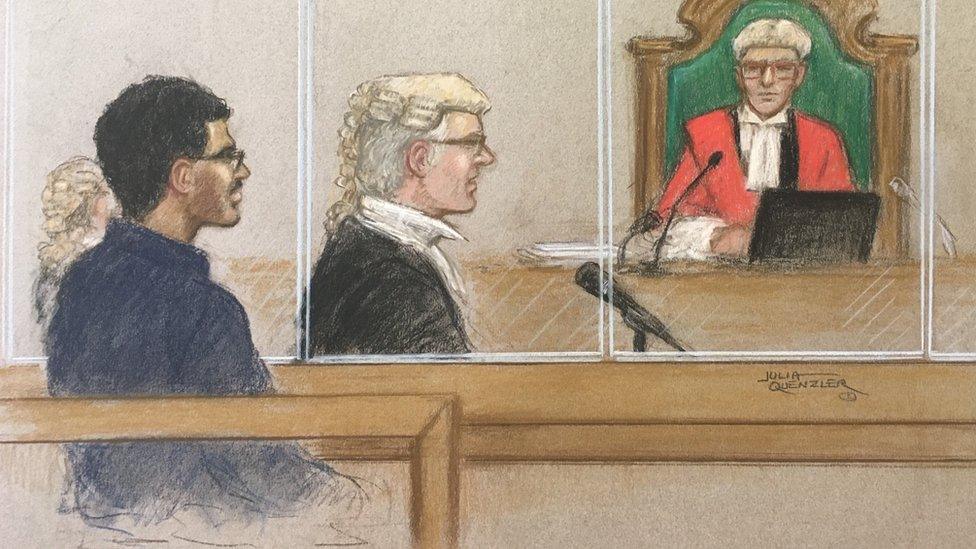
Hashem Abedi denies the murder of 22 people and the attempted murder of others
Mr Penny said the bomb was made from three chemicals, two of which the defendant had made various attempts to buy using false online accounts or via other people, some of whom had been "sufficiently gullible to avail him of their internet accounts".
He said Hashem Abedi had asked a relative if he could use an Amazon account to buy one chemical, but said the third chemical was easily purchased in chemists and police had not traced any acquisition of it by either brother.
Jurors heard the brothers had a "high turnover" of telephone numbers, some of which were only used for a few days "to avoid detection".
Records showed Hashem had five mobile numbers between June 2016 and May 2017, Salman had four, and they had shared a further two.
The trial continues.